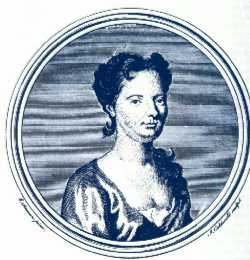
Francesca Cuzzoni was an Italian operatic soprano of the Baroque era.
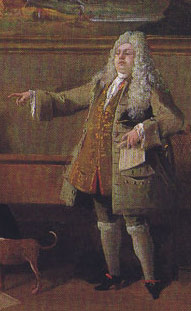
Nicolò Francesco Leonardo Grimaldi was an Italian mezzo-soprano castrato who is best remembered today for his association with the composer George Frideric Handel, in two of whose early operas he sang. Grimaldi was usually known by his stage name of Nicolini.

Margherita Durastanti was an Italian singer of the 18th century. Vocally, she is best described as a soprano, though later in her career her tessitura descended to that of a mezzo-soprano. First heard of professionally in Mantua in 1700–01, she later appeared in Bologna and Reggio Emilia (1710), Milan and Reggio (1713) and Florence (1715). Today she is particularly remembered for her association with the composer George Frideric Handel: indeed she enjoyed a longer personal association with the composer than any other musician.

Nicola Francesco Haym was an Italian opera librettist, composer, theatre manager and performer, literary editor and numismatist. He is best remembered for adapting texts into libretti for the London operas of George Frideric Handel and Giovanni Bononcini. Libretti that he provided for Handel included those for Giulio Cesare, Ottone, Flavio, Tamerlano, Rodelinda, and several others; for Bononcini, he produced two, Calfurnia and Astianatte.

Carlo Francesco Pollarolo was an Italian composer, organist, and music director. Known chiefly for his operas, he wrote a total of 85 of them as well as 13 oratorios. His compositional style was initially indebted to the opera tradition of Giovanni Legrenzi and Carlo Pallavicino, but he moved beyond this style with innovations to the compositional structure of the aria characterized by expanded forms and orchestral elaborations. His early work used three part strings in the Legrenzi and Pallacino tradition of orchestration, but his mid and later works had developed into a richer orchestration of five strings parts and expanded instrumentation of brass and woodwinds. He was the first Venetian opera composer and one of the earliest Italian composers to use the oboe in his opera orchestrations.
Antonio Maria Lucchini or Luchini was an Italian librettist. His texts were set to music by Antonio Vivaldi, Baldassare Galuppi, Leonardo Vinci, and Rinaldo di Capua, among others.

Anastasia Robinson, later known as Anastasia, Countess of Peterborough, was an English soprano, later contralto, of the Baroque era. As a performer, she is best remembered for her association with the composer George Frideric Handel, in whose operas she sang. She created roles in the world premieres of several of Handel's operas, including Zenobia in Radamisto (1720), Irene in Muzio Scevola (1721), Elmira in Floridante (1721), Matilda in Ottone (1723), Teodata in Flavio (1723), and Cornelia in Giulio Cesare (1724).
Ann Turner Robinson was an English soprano of the 18th century.
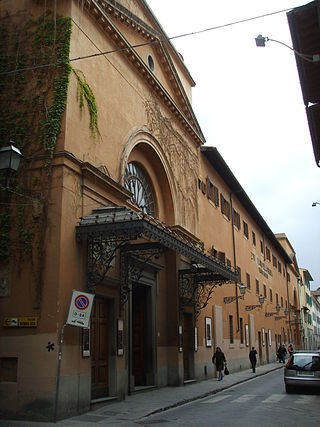
Antonio Salvi was an Italian physician, court poet and librettist, active mainly in Florence, Italy. He was in the service of the grand-ducal court of Tuscany and the favourite librettist of Prince Ferdinando de' Medici. Salvi was one of the developers of the opera seria.
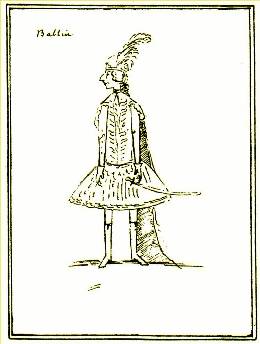
Annibale Pio Fabri, also known as Balino, from Annibalino, diminutive of his first name, was an Italian singer and composer of the 18th century. One of the leading tenors of his age in a time dominated by the castrati, Fabri is now best known for his association with the composer George Frideric Handel, in whose operas Fabri sang.

The Royal Academy of Music was a company founded in February 1719, during George Frideric Handel's residence at Cannons, by a group of aristocrats to secure themselves a constant supply of opera seria. It is not connected to the London conservatoire with the same name, which was founded in 1822.
Francesco Bartolomeo Conti was an Italian composer and player of the mandolin and theorbo. He also wrote the oldest mandolin method book that has survived.
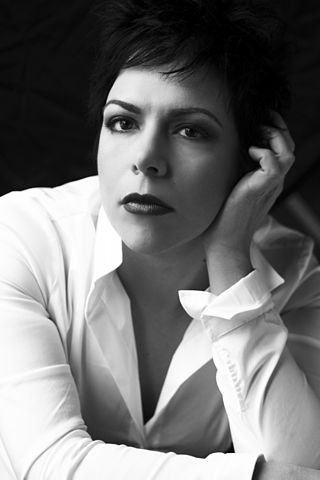
Sonia Prina is an Italian operatic contralto who has had an active career in concerts and operas since the mid-1990s. She is particularly known for her appearances in Baroque operas and for her performances of the Baroque concert repertoire. She has recorded works by composers George Frideric Handel and Antonio Vivaldi.

Carlo Scalzi was an Italian castrato who had an active performance career in major opera houses in Italy from 1718-1738. He was also heard in London in 1733–1734 where he notably created the role of Alceste in the world premiere of George Frideric Handel's Arianna in Creta. The librettist Pietro Metastasio described Scalzi as a "very unique singer" and likened his voice to that of the famous castrato Farinelli.

Sebastiano Biancardi, known by the pseudonym Domenico Lalli, was an Italian poet and librettist. Amongst the many libretti he produced, largely for the opera houses of Venice, were those for Vivaldi's Ottone in villa and Alessandro Scarlatti's Tigrane. A member of the Accademia degli Arcadi, he also wrote under his arcadian name "Ortanio". Lalli was born and raised in Naples as the adopted son of Fulvio Caracciolo but fled the city after being implicated in a bank fraud. After two years wandering about Italy in the company of Emanuele d'Astorga, he settled in Venice in 1710 and worked as the "house poet" of the Grimani family's theatres for the rest of his career. In addition to his stage works, Lalli published several volumes of poetry and a collection of biographies of the kings of Naples. He died in Venice at the age of 62.

Maria Caterina Negri was an Italian contralto who created numerous roles in 18th-century operas, including many by George Frideric Handel. She primarily portrayed male characters en travesti or female warriors such as Bradamante. Negri was born in Bologna and made her debut there at the age of 15. Her last known performance was in 1744. The date and place of her death are unknown. In its prime, her voice was known for its agility and wide vocal range.
Celeste Gismondi, originally known as Celeste Resse and nicknamed La Celestina, was an Italian soprano opera singer, who performed a major role in the première of some works by George Frideric Handel, including Orlando.

Bajazet is an opera by Francesco Gasparini, a revision of his 1711 work Tamerlano. It was first performed at the Teatro Pubblico in Reggio Emilia in 1719, with designs by Pietro Righini.
Santa Stella was an Italian soprano. She was also known as Santa Stella Scarabelli and after her marriage to Antonio Lotti on 12 February 1714 as Santa Lotti or La Santini.

Livia Nannini Costantini was a Polish naturalised Italian soprano, known as "La Polacchina, Virtuosa del Re di Polonia" as well as "Virtuosa della corte di Mantova".















